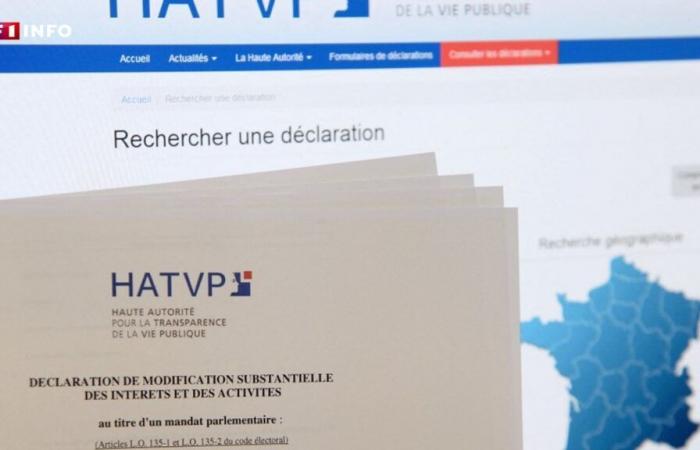
Prime Minister Michel Barnier has been refining the composition of his government for several days.
In addition to discussions with Emmanuel Macron, the names of future ministers are being scrutinized by the High Authority for Transparency in Public Life (HATVP).
How does it work?
Follow the full coverage
Prime Minister Barnier faces the headache of forming a government
This is a process that is now essential before any appointment of a new government: the passage before the High Authority for Transparency in Public Life (HATVP). As permitted by law, the President of the Republic can ask this institution for several pieces of information on those expected to enter the government.
This information includes bulletin No. 2 of the criminal record, a certificate from the tax administration indicating whether the person is up to date, in compliance with tax secrecy, as well as whether or not the person is in a situation of conflict of interest with their future portfolio. The HATVP has the declarations of interests or assets of nearly 15,000 elected officials and public officials. In light of these elements and on the proposal of the Prime Minister, the Head of State appoints the government.
Why was such a step created?
We have to go back to 2013 to find the first traces of evidence. That year, a scandal broke out: that of the hidden account of the former socialist Minister of the Budget, Jérôme Cahuzac. In response, Parliament voted for the laws on transparency. They provide for a complete verification of the tax situation of each new minister to be carried out once the appointment is made official. Hence the creation, at the end of 2013, of the High Authority for Transparency in Public Life.
Less than a year later, the HATVP had already claimed its first victim. In September 2014, Thomas Thévenoud, who had just been appointed Secretary of State, resigned for not having declared his income, or having declared it late. He was finally sentenced for tax fraud to a one-year suspended prison sentence and three years of ineligibility in September 2019, after his final appeal to the Court of Cassation was rejected. Since then, François Hollande and then Emmanuel Macron have always ordered checks before appointments.
Who makes up the High Authority?
In addition to the sixty or so employees that make up the body, the HATVP includes a college which “examines the files prepared by the services and adopts all the decisions of the institution”it states on its website. It is composed of two members elected by the Council of State, two by the Court of Cassation, two by the Court of Auditors, two appointed by the President of the National Assembly, two by the President of the Senate and two by the government. It is currently chaired by Didier Migaud, former President of the Court of Auditors and former Socialist MP.
-
Read also
New government: Retailleau, Genevard, Barrot… The personalities proposed by Michel Barnier
This college examines the requests of the President of the Republic concerning the situation of each candidate. Once appointed, the ministers and secretaries of state must themselves transmit the declarations of assets and interests to the HATVP. They are checked and then made public.





